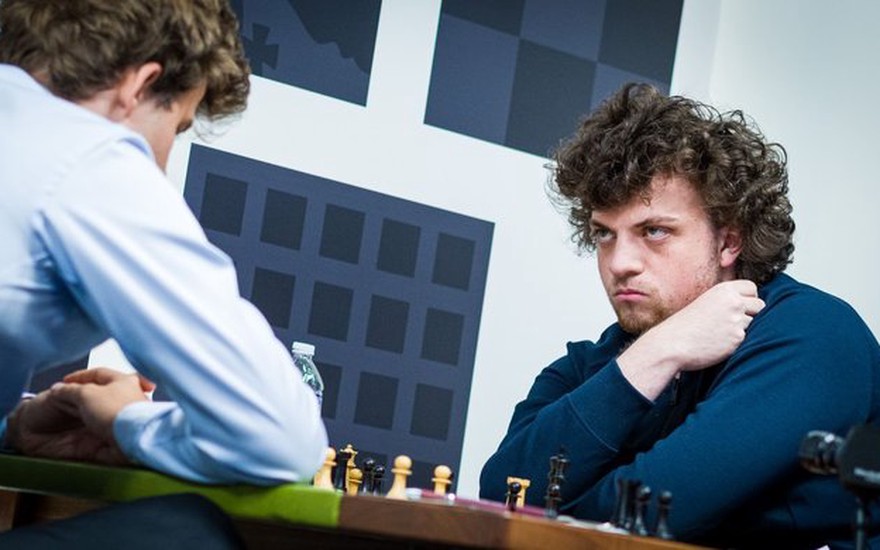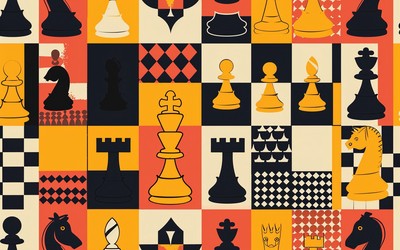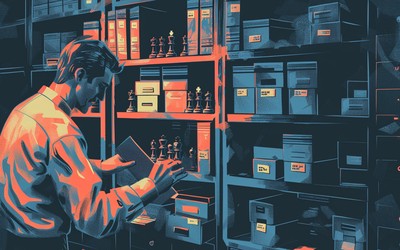
The Elephant in the Room
2022 blew the lid off cheating in chess... but nothing has been resolvedFor a while there it seemed like cheating bombshells were dropping every week. It all started when Magnus Carlsen withdrew from the Sinquefield Cup after losing to Hans Niemann, and sent a cryptic tweet implying Niemann had cheated in the game; a few days Niemann fired backwith an impassioned statement in his own defense, admitting he had cheated in the past in online games, but never in over-the-board (OTB) chess. Just when things seemed to be settling down, Niemann and Carlsen were paired again in an online tournament, and Carlsen resigned after one move, effectively reigniting the controversy. Chess.com released a long report that noted irregularities in Niemann’s rise, but ultimately concluded there was no evidence of OTB cheating. Niemann countered with a lawsuitagainst Carlsen, Chess.com, and others.
And then... mostly nothing. Given the lack of recent news, it’s almost easy to forget about the cheating scandal that embroiled all of the chess world for much of 2022, and even spilled over into the mainstream press. (They were especially fascinated by the suggestion that Niemann could have cheated using signals transmitted to anal beads during the game.) But while the scandal blew the lid off cheating concerns that had been simmering quietly for years, nothing was really resolved. The lawsuit could take years to play out. Both Carlsen and Niemann continue to play actively, and with good results. Carlsen recently won the World Rapid and World Blitz championships, a spectacular accomplishment reaffirming his status as the undisputed top player in the world (even if he won’t be competing in the upcoming World Championship Match). Niemann has also continued to find success, getting his classical rating back over 2700 after a brief dip, with impressive showings at tournaments like Chessable Sunway Sitges, where he took second in a strong field. What happens if and when Carlsen and Niemann are paired against each other again?
The question of whether Niemann cheated OTB remains entirely unresolved. Niemann’s rise back to a 2700+ rating amidst intense scrutiny and tightened anti-cheating measures seems to at least rule out the possibility that he was a middling player who propelled himself to the top of the chess world through continuous, undetected cheating. At this point there’s little doubt that he is, in fact, a very strong grandmaster. Of course that doesn’t rule out the possibility that he also cheated. FIDE’s Investigatory Panel, convened to examine the Carlsen-Niemann incident, released a brief statement in December of 2022 saying they’ve been “working very hard” but not providing any timeline for a final report. Realistically, it’s hard to imagine what the FIDE investigation can add that hasn’t already been said. Ken Regan, widely regarded as the world’s leading expert on chess cheating detection, examined Niemann’s track record and found no evidence of foul play. The Chess.com reportlikewise concluded there was no evidence of OTB cheating. Unless the panel uncovers some completely unexpected new source of evidence, the investigation seems to be at a dead end.
Meanwhile, it’s not clear that we’re any closer to building a coherent and robust anti-cheating policy. While it was Niemann who attracted all the attention, he’s far from the only player to be busted for cheating online. The Chess.com report said, “We’ve closed the accounts of hundreds of titled players (including 4 of the top 100 Grandmasters who have confessed to cheating).” While I assume Chess.com shared this information to underscore the strength of their anti-cheating capabilities, it also points to an alarming incidence of cheating online. This is all the more relevant as competitive chess moves more and more online, with prestigious titles and big prize funds on the line. As hard as it is to catch someone cheating OTB, online is far tougher. All someone needs is to look at a cellphone, second laptop, or to have someone else in the room reading off moves. Tournament organizers have tried to address this with solutions like requiring multiple camera angles on the players, but it’s hard to completely secure a playing environment remotely. Who’s going to disqualify a top grandmaster if they say they need to use the bathroom in their home?
In a recent episode of the C-Squared Podcast, Fabiano Caruana, Christian Chirilla, and Levy Rozman had an unusually candid discussion of online cheating. Caruana, one of the best players in the world, said, “You feel like you’re being gaslit... Some random guy, 2200, is just outplaying me consistently the entire game, and suddenly just starts blundering all their pieces... Did they cheat, did they not? I don’t even know anymore.”
This squares with my own experience of playing online. Many of the games feel weird: my opponents don’t seem to play like any opponents I’ve encountered OTB. At the same time, I recognize that no one is immune from confirmation bias, and once the idea of cheating lodges itself in your mind, you start to see ghosts everywhere. It seems likely that this is what happened to Carlsen in the loss against Niemann that set off the whole controversy. There is a consensus that Niemann probably did not cheat in that game (although some, perhaps including Carlsen, would still dispute this); but Carlsen’s suspicion that he could be cheating caused him to play far below his usual level. So tournament players now need to navigate both the possibility of cheating, and the ill effects of their own suspicion, which can be equally damaging.
2022 blew the lid off the problem of cheating in chess, but in 2023 we’ll need to find solutions. Some have already been implemented in measures like broadcast delays on tournaments and additional screening with metal detections, but we’re still a long way from a comprehensive plan. In particular, it’s not clear to what extent penalties for online cheating should carry over to OTB tournaments, and who would be responsible for deciding all of this. Given how easy cheating is to do and how hard it is to catch, I suspect part of the solution will have to involve harsher penalties when someone is caught, in order to deter others from going the same path. We’re going to need to rethink the policy of protecting online cheaters’ identities and giving them second and third chances. At the end of the day we need a system that is fair, transparent, and consistent. What such a system will look like remains to be seen.
If you liked this check out my newsletter where I write weekly posts about chess, learning, and data: https://zwischenzug.substack.com/




